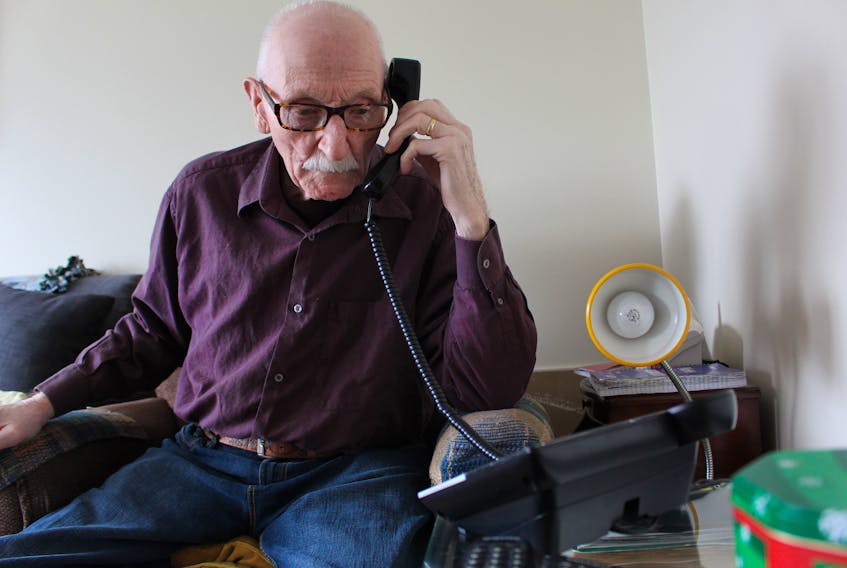KENSINGTON – It’s not a surprise to Elmer Cannon when he answers the phone and hears, “We’re with Windows, we’ve noticed there is a problem with your computer.”
Cannon, a 92-year-old Kensington resident, says he is quick to end those calls, as he does not have a computer and does not want to be scammed.
“I don’t talk to people on the phone unless I know who they are. It’s probably about twice a week that I receive calls like that asking to open some form of technology or asking me for money.”
Cannon says it’s dangerous for seniors that scam calls and emails are circulating.
“I remember, a few years ago, I got a phone call from somebody claiming to be the police association and asking for a donation. I said I would happily give them a donation if they would come to my door and accept it.
“They said they wouldn’t be able to do that, so I hung up. Then I went to the Kensington Police Station and asked them if they had been making calls for donations and they weren’t.”
Cannon says he has been quick to shut down phone calls like that ever since.
“People can lose a lot of money at the hands of people scamming them through the phone or other technology.”
He says hanging up is the easiest way out, but it comes down to not speaking to people on the phone that you don’t know, because people on the other end can make it sound pretty good, which is really bad.”
He says it doesn’t help that advancements in technology are happening constantly.
“I certainly think it makes it easier for people to be scammed and for people to scam others.”
David MacMillan, of HomeInstead Care said with more and more seniors using computers and other forms of technology, it’s important to ensure people are educated and know how to be aware of what dangers are out there.
Corporal Jennifer Driscoll of Summerside Police Department says the department receives several calls a week from people reporting they have been contacted by scammers. Victims are from all age groups, but seniors are especially susceptible as they are more trusting, and often will not report being defrauded as they may feel embarrassed.
Some scams that have been reported over the past few weeks include:
– Advertisements that seem to offer employment where a cheque is mailed to the person, with a request to cash the cheque and keep a portion for themselves and then mail the remainder via Western Union.
– Lottery scams
– CRA scams requesting payment through e-transfer or BitCoin machine
– Relationship scams where one person believes to be involved in a real online relationship with another person but has never met them. The scammer will gain the trust of a person and often request money.
Driscoll says if a person has received a fraudulent phone call, email, text or other scam but have not been defrauded, to call the Canadian Anti-Fraud Centre at 1-888-495-8501 or to report the attempted fraud at www.antifraudcentre.ca. If a person has been defrauded, she urges people to report it to the police.
Tips and Tricks to prevent fraud:
–Never Send money or personal information to an individual unless you know for certain who you are sending it to
–If you suspect you are communicating with a suspicious person, stop the communication immediately
–When calling back a business or organization, look up the phone number and do not call back the number displayed on your phone
–If you are suspicious about a call or email/text ask a trusted friend or call for police advice
–If it’s too good to be true, it probably is.









